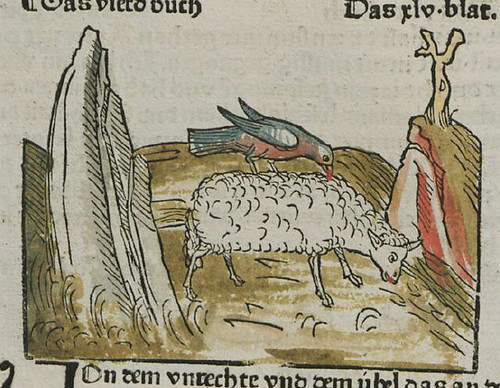HODIE (Roman Calendar): ante diem undecimum decimum Kalendas Februarias.
MYTHS and LEGENDS: The art image for today's legend shows The Abduction of Helen; you can also see the legends for the current week listed together here.

TODAY'S MOTTOES and PROVERBS:
TINY MOTTOES: Today's tiny motto is: Sine timore (English: Without fear).
3-WORD PROVERBS: Today's 3-word verb-less proverb is Nihil potentius auro (English: Nothing is more powerful than gold)
AUDIO PROVERBS: Today's audio Latin proverb is Meum mihi, suum cuique carum (English: To me mine is dear, and to each person his own is dear). To read a brief essay about this proverb and to listen to the audio, visit the Latin Via Proverbs blog.
PUBLILIUS SYRUS: Today's proverb from Publilius Syrus is: Mutare quod non possis, ut natum est, feras (English: What you cannot change, you must endure as it happens).
ERASMUS' ANIMALS: Today's animal proverb from Erasmus is Aquila non captat muscas (English: An eagle doesn't catch flies; from Adagia 3.2.65).
BREVISSIMA: The distich poster for today is Iniuria Repetit Auctorem. Click here for a full-sized view.

And here are today's proverbial LOLcats:


TODAY'S FABLES:
FABULAE FACILES: The fable from the Fabulae Faciles widget is Avarus et Poma Marcescentia, a wonderful little story about a greedy man and his apple orchard (this fable has a vocabulary list).
MILLE FABULAE: The fable from the Mille Fabulae et Una widget is Lupus, Corvus, et Aries, a story about why the wolf was jealous of the crow.

Greek Bible Art - and Latin and English, too. Below is one of my Greek Bible Art graphics; for the individual Greek, Latin and English versions of the graphic, see the blog post: ἐποίησεν ὁ θεὸς τὸν ἄνθρωπον κατ᾽ εἰκόνα θεοῦ. Creavit Deus hominem ad imaginem suam. God created man in his own image.
